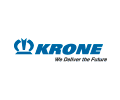The business group representing the logistics sector, the Freight Transport Association (FTA), is calling on MPs to vote in favour of the Withdrawal Agreement to keep Britain trading post-Brexit by delivering the frictionless trade that the logistics sector was promised.
 James Hookham, deputy Chief Executive of FTA, represented the transport and logistics sector at a gathering of 130 businesses and trade associations at number 10 Downing Street on Monday (26 November 2018), to discuss the proposed Brexit agreement with the Prime Minister and leading members of her cabinet.
James Hookham, deputy Chief Executive of FTA, represented the transport and logistics sector at a gathering of 130 businesses and trade associations at number 10 Downing Street on Monday (26 November 2018), to discuss the proposed Brexit agreement with the Prime Minister and leading members of her cabinet.
“If the UK’s complex supply chain is to be protected, and the nation is to keep on trading efficiently after Brexit, it is vital that a deal is reached with the EU,” says Hookham, “and on behalf of our 17,000 members, I stressed that a No Deal outcome to negotiations is not an option which would be acceptable to the continued success of the UK’s logistics industry. So much depends of the nation’s economic success depends on the maintenance of a successful, resilient supply chain.
“No Deal is No Option for the logistics and supply chain managers who would struggle to keep essential supplies flowing if the UK leaves the EU on 29 March 2019, and goods suddenly become subject to new customs declarations and duty payments and to conformity checks and inspections at the EU border. The number of trucks able to travel between the UK and Europe would be severely restricted and the ferry ports on both sides of the English Channel and the Irish Sea are not prepared for these changes and would not be able to cope. Long queues of trucks would form on motorways in Kent and North West France as the number of ferry sailings and shuttle trains between Dover and Calais are reduced because of longer turnaround times.”
“Ratification of the Withdrawal Agreement by MPs on 11 December 2018 would avoid all this happening by giving us the Transition Period; this would allow frictionless trade and transport would carry on as normal after 29 March 2019 until at least the end of 2020, even though the UK had left the EU as planned. During that time the terms of the UK’s new free trade agreement with the EU would be negotiated, which hopefully would remove the need for all customs and border checks on UK-EU goods permanently and continue the frictionless trade we currently have, as the government promised, even though the UK had left the EU Customs Union and the Single Market.”
After positive conversations with several leading MPs at the event, Hookham was reassured that the government will continue to press the EU for a deal which will benefit industry as well as consumers:
“Frictionless trade always was and remains FTA’s Brexit goal and conversations at number 10 last night confirmed that this is an urgent priority for the government’s negotiating team. What is clear, and what I and other business leaders at the event hammered home is that No Deal is No Option if Britain is to continue trading efficiently with Europe and the rest of the world. While the next two weeks of political manoeuvring will undoubtedly be complicated, FTA and other businesses at last night’s event is stressing to the Prime Minister that a No Deal outcome would be bad for the logistics industry, and bad for business as a whole.”
To help businesses prepare for Brexit – whatever the outcome – FTA is holding an event on 19 December 2018 in Central London, Getting logistics ready for Brexit, and all international hauliers are advised to attend. For more information please visit https://fta.co.uk/events/getting-logistics-ready-for-brexit
Efficient logistics is vital to keep Britain trading, directly having an impact on more than seven million people employed in the making, selling and moving of goods. With Brexit, new technology and other disruptive forces driving change in the way goods move across borders and through the supply chain, logistics has never been more important to UK plc. A champion and challenger, FTA speaks to Government with one voice on behalf of the whole sector, with members from the road, rail, sea and air industries, as well as the buyers of freight services such as retailers and manufacturers.
For more information on FTA please visit https://fta.co.uk


.gif?rand=1153)











